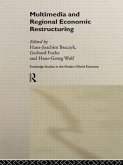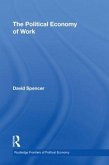Since the late 1970s, the spread of Neo-liberalism and the failure of socialist economies and systems in Eastern Europe have resulted in a practically unchallenged hegemony of international capital across the globe. Neo-liberalism is now the dominant ideology, legitimizing the privatisation of state-controlled economies and the substitution of the market for social provision and basic welfare. In Restructuring Hegemony in the Global Political Economy the authors argue that this process began with the defeat of the New International Economic Order, the Euro-Communist ascendency in Western Europe, the overthrow of the Allende government in Chile, and culminated in the collapse of practical socialism. They assert that the victory of neo-liberalism is now so complete that its radical features have come to be accepted as the new normality.
Bitte wählen Sie Ihr Anliegen aus.
Rechnungen
Retourenschein anfordern
Bestellstatus
Storno









